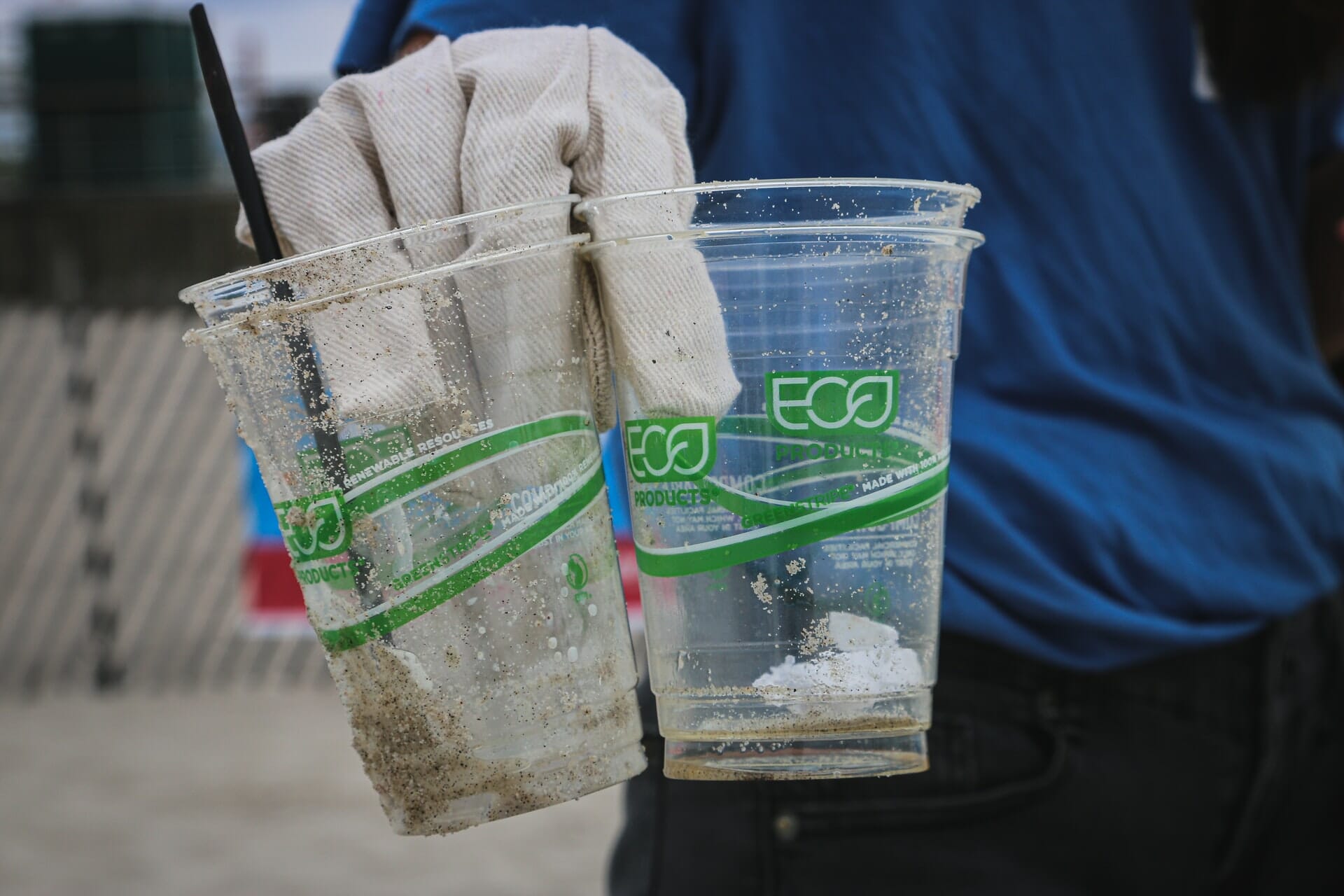The plastic cup that says 100% compostable or biodegradable may not actually be compostable or biodegradable, and may not be helping the planet in reducing the use of plastic. What these products are usually made from is Polylactic acid (PLA), a polymer made from lots of little bits of lactic acid molecules derived from the fermentation of starch like corn, cassava, or potato plants.
What happens is that standard plastic is mixed with this plant-produced starch in order to obtain the label “compostable” or “biodegradable”. But it’s a misnomer and doesn’t do the job. With PLA mixed into standard plastic, the resulting product may be less durable over the long term and break down into smaller pieces more quickly. But small plastic bits are still plastic and will persist in the ecosystem.
Related Articles: What Being Labeled Toxic Might Mean for the Future of Plastics in Canada | Our Sustainable Future: How to tackle Kitchen Plastic Waste | New Plastic From China Degrades in Sun and Air | 4 Ways to Reduce Plastic Pollution | Curbing the Plastic Pollution Pandemic
PLA products require that you have in place the proper infrastructure and industrial equipment to “compost” them. Tossing a PLA cup into your home compost pile won’t break it down, says Nora Goldstein, executive editor of BioCycle magazine, “I put [compostable plastic] cups from NatureWorks in [my home compost] from the early fall of last year, and they’re still there,” she says. The only way to make the cups actually break down, she says, requires a specific set of microorganisms used in industrial composting that need temperatures well above what most backyard heaps reach to thrive.
Cups and containers have been tested in both the lab and at composting facilities to ensure they break down within an approved timeline, usually six months, to comply with the ASTM International standard. However, there are very few facilities in the US that are set up to handle PLA products. In a survey of composting facilities across the country, BioCycle found that only 49 out of 4,700 composters nationwide accepted compostable plastic products. Although intentions may be good, a restaurant or venue providing compostable cups doesn’t mean much if the local waste system isn’t set up to process them.
When it comes to the decomposing process, some rank PLA’s worse than standard plastics due to the decomposition process which causes them to emit methane contributing to global warming. This problem is similar to the process of decomposing food. People often confuse one for the other, especially given the ambiguity of the labeling process. As a result, regular plastic contamination can easily make it into the compost stream if a compost manufacturer decides to accept PLA cups.
Regular plastic truly will not break down, no matter how hot the compost pile. This plastic contamination can reduce compost value as well as contribute to plastic pollution in the soil and waterways. Further, some industrial composters operate on a faster cycle than what’s appropriate for breaking down PLA and aren’t incentivized to adapt.
At the end of the day, plastic will still be a persistent problem. Even with environmentally friendly sounding labels, whether they don’t get to the right facility, or don’t completely break down, the substance will still linger into the ecosystem.
The only way to really reduce the problem is by converting to reusable items and materials and doing away with single use plastic items altogether. Blending a thin layer of cornstarch into the manufacturing process of a plastic cup may just be a last minute effort by petrochemical companies to stay afloat. It may just be something that sounds and feels good in the short term till we realize it doesn’t fix the problem of too much plastic in our ecosystems. Instead, it just prolongs and adds to the problem.
Editor’s Note: The opinions expressed here by Impakter.com columnists are their own, not those of Impakter.com. — In the Featured Photo: Compostable cups being found on the beach. Featured Photo Credit: Brian Yurasits.










